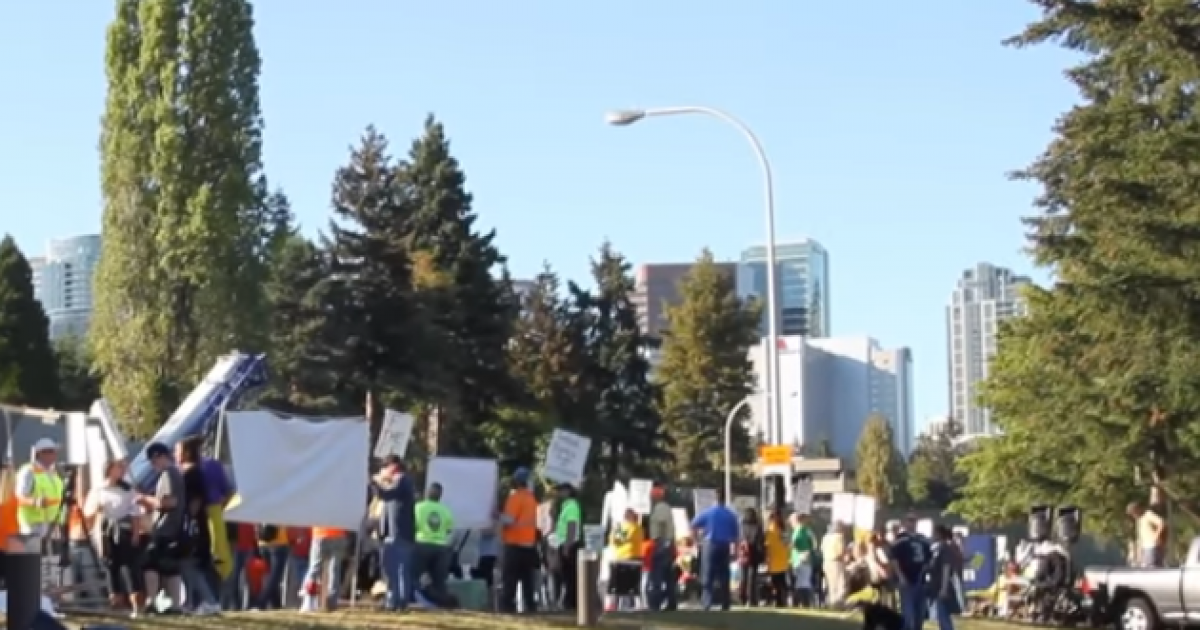
Thanks to free legal aid from the National Right to Work Legal Defense Foundation, an Illinois-based employee of Pinnacle Foods Group LLC (a Conagra Brands subsidiary), Robert Gentry, won a decision from the National Labor Relations Board (NLRB) which upheld the right of workers to hold a vote to remove unpopular unions from their workplaces.
This decision came after union leaders and Pinnacle Foods signed a settlement which the union and NLRB Regional Director prevented Gentry and his coworkers from exercising their right to hold a union decertification election.
In August 2018, Gentry submitted a petition for a decertification vote. In response, United Food and Commercial Workers (UFCW) Local 881 union officials immediately tried to block the election by filing unfair labor practice charges against Pinnacle Foods. Despite UFCW officials’ allegations not being related to Gentry’s petition to remove the union, the NLRB Region 14, instead, approved a settlement between UFCW officials and Pinnacle Foods which supposedly established a seven-month “bar” on decertification elections, in addition to a previous one-year “bar.”
Although the National Labor Relations Act (NLRA) does not mandate or impose it, previous NLRB actions set the so-called “settlement bar” doctrine, which keeps workers from exercising their right to hold a vote to remove a union for a certain period of time.
With legal counsel from the National Right to Work Foundation, Gentry submitted a request for review to the NLRB in Washington, DC. Gentry demanded that the Board overturn the Region 14 Director’s dismissal and allow the decertification vote to continue. The request contended that the Regional Director made an error in using a settlement, in which Gentry was never a party to, to approve the blocking of a decertification election. The request read, “[T]he Regional Director cannot seriously contend that the petition should be dismissed…for the simple fact that…it is Mr. Gentry’s and the employees’ petition.”
Furthermore, the request highlighted that the settlement agreement that was used to block the workers’ right to a decertification vote had a “non-admission” clause which declared that the settlement “[did] not…constitute an admission, finding, or adjudication” that Pinnacle Foods had violated the NLRA. It also said that such a “mere presumption” of employer wrongdoing “is not…sufficient to thwart a decertification election.”
Now, the NLRB decision in Washington, D.C. ordered the Region 14 Director to process Gentry’s request for review, ruling that “[b]ecause [Gentry] did not consent to the settlement agreement, we find that the settlement agreement can neither waive [his] right to have his decertification petition processed nor delay” an election for decertification.
For a long time, Foundation staff attorneys urged the NLRB to get rid of such “bar” doctrines that are no longer required by the statute enacted by Congress, which impedes workers from holding decertification votes through the NLRA’s authorization. Although agency officials made an announcement last year to reform some of the barriers workers face in holding decertification votes. Foundation Legal Director Raymond LaJeunesse wrote a letter last year urging the agency to take a step further by eliminating all of the “bars” that violate the NLRA by keeping workers under union boss’s thumbs, even when a large majority opposes the union.
“Although it’s good news that Robert Gentry and his coworkers will belatedly be given the opportunity to exercise their right to remove a union they oppose, this case shows how the so-called ‘settlement bar’ and other ‘bars’ are manipulated by union bosses to trample workers’ statutory rights under federal labor law,” National Right to Work Foundation President Mark Mix said. “Union bosses should not be able to trap workers in union ranks on the basis of a settlement to which the workers were not party and to which they had no say.”
“It’s long past time the NLRB put employee free choice back at the center of American labor law and eliminated the numerous ‘bars’ and doctrines that block workers from exercising their right to removing union officials they oppose,” continued Mix.



